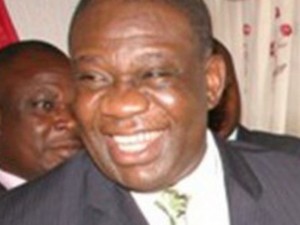The Minister of Power, Prof Chinedu Nebo has stated that the power sector’s gas debt has reduced from its estimated N30 billion in 2012 to about N20 billion.
He stated this at the Nigeria Economic Summit Group Forum in Abuja, yesterday, he said: “as at the second half of last year, the debt was about N30 billion and now it has been reduced to just above N20 billion.
“Market operator commenced the payment of 100 percent of NGC (Nigerian Gas Company) invoice in August 2012, and we expect the trend to continue. In other words, we know about this debt and we are working to ensure the right things are done.”
Also Speaking on the issue, Mrs. Alison -Madueke, who was represented by the Group Executive Director (GED), Gas and Power of the Nigerian National Petroleum Corporation (NNPC), Dr. David Ige, said it was estimated that by year end, gas demand by National Integrated Power Projects (NIPP) will soar by an estimated 340mmcf/day coming notably from Geregu and Ihovor.
In her report, “Several efforts are being taken to ensure gas supply grows in line with this demand. In the short term to end 2013, about 130 mmcf/d is expected in the west. However, between 2014/2015 almost 1000mmcf/d is forecast to be added. This will bridge the gap in demand by NIPP.
“In the East, the short term objective will be to utilise already available gas for which either delays in completion of the power plants, or other infrastructural projects will prevent gas usage. These are expected to be addressed through 2014/2015, thereby bridging shortfalls in the East. In essence, with our current supply plans, there is confidence that NIPP demand can be met by 2015.”
She said the pipelines to Geregu, Olorunshogo, Alaoji and Omotosho have all been completed and providing permanent supply arteries to the plants enough to meet “both current and future demand requirements.”
Mrs. Alison-Madueke noted that given the scale of the ongoing infrastructure projects, the sector is vulnerable to the usual challenges of project slippages and contractor related issues, adding that these were being addressed to ensure minimal impact on the supply agenda.
She said that a key dis-incentive to supply growth is the payment performance of the power sector, adding that for 2013, the overriding issue is less about gas supply sufficiency, but more about dealing with electricity transmission problems.
Furthermore, Prof Chinedu Nebo yesterday said the Federal Government will ensure that private sector operators conform strictly to the nation’s labour laws, and treat Nigerian electricity workers with the dignity they deserve.
The Minister added that the nation’s electricity workers are a most valuable asset, whose experience and competencies are indispensable, even in the new dispensation of privatisation.

